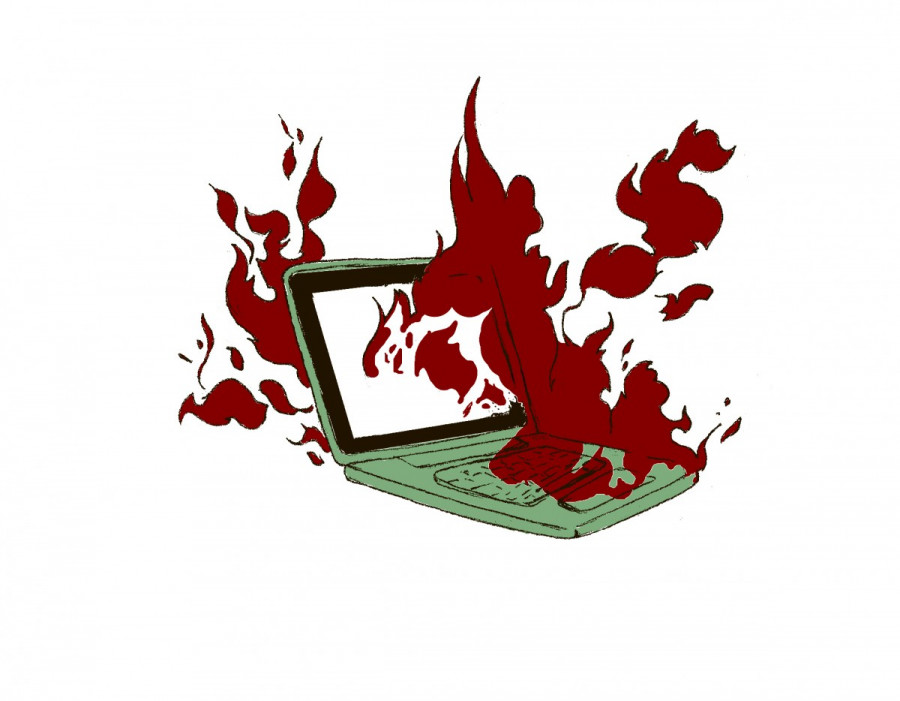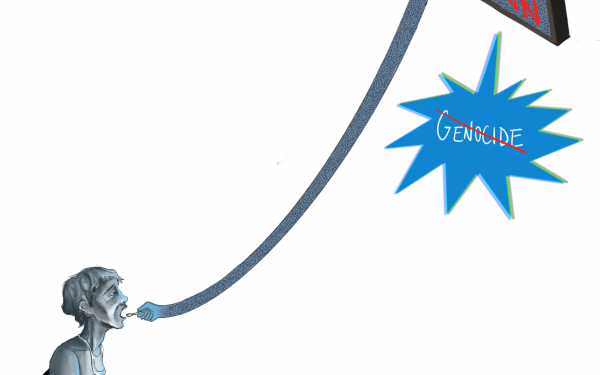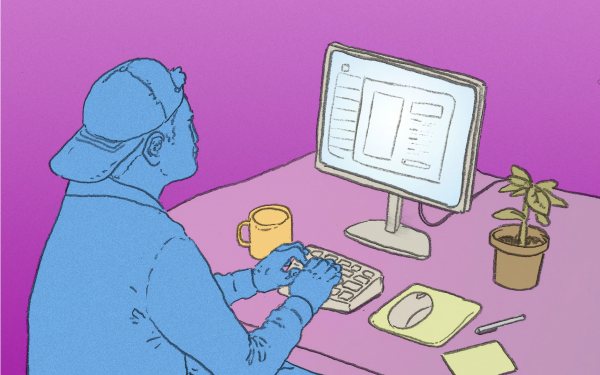Against the Web
Breaking News and the Shame of Social Media
All Media Democracy content is available on our Special Issue Microsite. Works best on Chrome or Firefox.
“Less than 10 per cent of what the Internet is used for is good,” declared my professor of European history one morning, as students stared one another down across the picket lines of the Maple Spring.
Admittedly, my memory of his exact quote is hazy—he might’ve said less than one per cent.
At the time, I had just deleted my Facebook account for good and I was surprised to find myself agreeing with him. Now, nearly two years later, I would offer a more generous percentage—but it’s the spirit of his statement rather than the statistics that has stuck with me.
The social media response to the Boston Marathon bombings this past April has become a textbook example of just how useless the web can be. In retrospect, it’s astonishing how so many people got so much wrong so quickly.
Shortly after Boston police released video footage of the perpetrators to the public, Reddit users mistakenly identified one of them as 22-year old Brown University student Sunil Tripathi, who had gone missing a month before the bombings. Tripathi had a history of depression and reportedly had taken a hiatus from his studies because of it.
As Tripathi’s name began to pop up on Twitter, media personnel from both old and new platforms began spreading the misinformation further. Reddit, 4chan and Twitter users celebrated, with no shortage of cringe-worthy rhetoric—a “victory” of new media over the old.
Tripathi’s family, already highly distressed, was flooded with the disgusting but unsurprising messages we’ve come to expect any time a community finds a new target, especially in the Internet age of laptop social justice crusaders.
When the true identities of the bombers were revealed, many of those responsible for fuelling the mistaken-identity inferno either slipped back into anonymity or deleted their relevant tweets, and only a few offered apologies.
One month after the bombing, Tripathi’s body was found in Rhode Island’s Providence River. It’s difficult to know whether Tripathi was alive during the frenzy. Police say his death was likely a suicide, but that has yet to be confirmed.
Even after the Tripathi debacle, social media’s potential to ease or exacerbate crises remains ambiguous.
“There’s always been misreporting; social media amplifies the misreporting exponentially,” said Lisa Lynch, a Concordia journalism professor specializing in the relationships between new and old media.
“But it also leads people to catch errors much more quickly than they might otherwise.”
Lynch cited similar stories where social media was often responsible for breaking news, like Hurricane Sandy and the Arab Spring, as events where organizations like NPR and The New York Times, as well as independent contributors, put intensive verification systems in place for social media.
“The media knows better,” she said.
“People are realizing that, more than rules, some structures might be necessary as well, like a dedicated social media person in times of crisis. I think [the Boston bombings] was a good moment of coming-of-age of certain kinds of modalities of social media.”
Lynch believes that the timing of the Tripathi accusations, which were largely put together in the small hours of the morning, played a key role in why the misinformation was accepted so uncritically by some mainstream news outlets.
“I was shocked that the information had lasted that long, and I think it wouldn’t have if the story had broken at 10 in the morning instead of 10 at night, or whenever it broke,” she said.
“It was a time when fewer people were around and up who might have been doing that kind of adjudication, when the news had slowed down a bit and news outlets were looking for updates for the story.”
Lynch added it was also a prime time for people to come up with conspiracy theories.
“As much as Reddit straddles the mainstream, it’s also a place where 18-year-olds at three in the morning are going to try to play junior detective,” she said.
“So I think the error in that case was using Reddit as a source. There was a lot of laziness within the media.”
“There’s always been misreporting; social media amplifies the misreporting exponentially.”
— Lisa Lynch, Concordia journalism professor
Herding the Mob Mentality
It’s clear that both old and new media have a lot of growing up to do after what happened to Sunil Tripathi, but the way forward isn’t clear. Although structural changes to social media are conceivable, Lynch doubts they’d be imposed through outside channels.
“I don’t think [change] is going to happen at the level of legislation,” she said.
“I think it’s going to happen platform by platform.”
Lynch mentioned that Twitter and Facebook, which have a much stronger corporate identity than Reddit, have already implemented stronger moderation practices—even, in Twitter’s case, localized censorship.
Similar changes seem less likely for Reddit and other democratically run sites, but Lynch said that those communities could come together to make similar decisions, citing Wikipedia’s recent communal choice to ban anonymous submissions.
Yet even Reddit, as shown by a public apology on the Reddit blog following the Tripathi case, can put on an official face when it needs to. Many websites that have no pre-digital incarnations—most obviously Facebook—are becoming, in their own way, as institutional as the old media they broke away from.
The mimicry runs both ways. Obviously, mainstream media frequently makes the same mistakes Reddit did, but those mistakes occur mainly because older platforms have been forced to adopt the means of newer ones in order to stay relevant.
Twenty-four hour TV news channels and Twitter depend on the same element—speed—but the web just does speed better. The crisis of mainstream media’s continued relevancy wouldn’t be occurring right now if that weren’t the case.
After the Sunil Tripathi incident, it seems clear that social media needs to be more heavily critiqued than ever—especially by our generation, which is becoming increasingly defined by it. Our confidence in our own authority has dangerous consequences.
The problem might not lie with any intrinsic sense of entitlement our generation has, but more with how the structure of social media encourages entitlement. And as Lynch says, those structures can only change from within.
The Internet is a radical democracy in theory, but if its practice involves torturing the family of an innocent man, it doesn’t deserve the title. If there’s one thing the social media landscape needs to learn, it’s when to shut up and wait.
Otherwise, we may let something even worse slip past our better natures next time.







